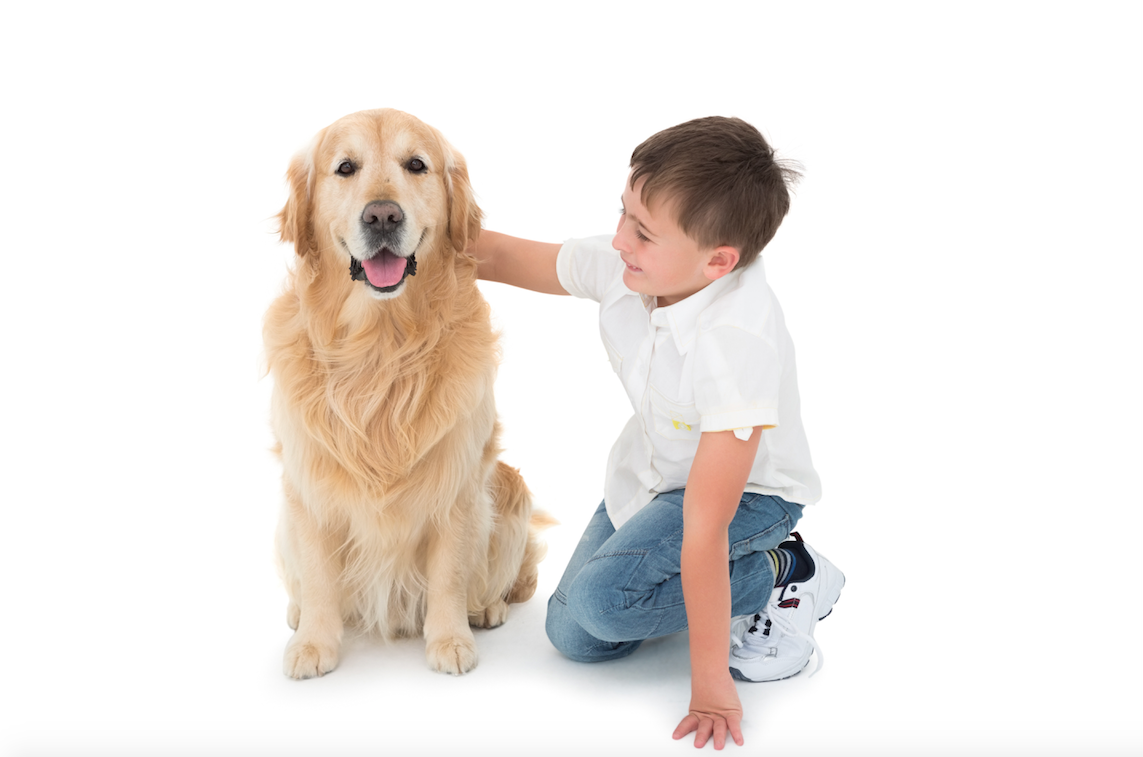Research shows the benefits of autism service dogs
Many kids with autism spectrum disorder (ASD) contend with behavioral issues, have communication deficits and / or struggle with forming social relationships. These issues make it hard for them to connect to others in the community. These issues are magnified because the community at large does not understand autism fully. As a result, many children with autism retreat further when they get ignored, made fun of or worse yet bullied.
Humans at wonderful organizations, like Autism Speaks, are trying to educate the community to build tolerance and understanding. And the super human parents of children with autism are doing all they can to help their children cope, assimilate and succeed. Humans with all of their education, compassion, computers and data, however, may not have the best solution. Canines seem to have more suitable answers and can relate better.
This heartwarming story from Memphis Tennessee, shows how an autism service dog helps a boy with autism at school.
WMC Action News 5 – Memphis, Tennessee
Children with autism seem to be able to connect and bond with pets. Researchers from the University of Missouri surveyed 70 families with children 8 – 18 who have autism. 70% of the families had dogs and 50% had cats. The research showed that the children with dogs had higher scores for social skills (Social Skills Improvement System Rating System). The research also showed that children with any type of pet (including dogs) were significantly more assertive.
Children with Autism Who Live With Pets Are More Assertive from MU News Bureau on Vimeo.
Another study called Social Behaviors Increase in Children with Autism in the Presence of Animals Compared to Toys, showed the following:
Participants with ASD demonstrated more social approach behaviors (including talking, looking at faces, and making tactile contact) and received more social approaches from their peers in the presence of animals compared to toys. They also displayed more prosocial behaviors and positive affect (i.e., smiling and laughing) as well as less self-focused behaviors and negative affect (i.e., frowning, crying, and whining) in the presence of animals compared to toys.*
The Benefits of Autism Service Dogs
On of the most respected service dog placement agencies is called 4 Paws for Ability . 4PFA was the first service dog placement agency in the US to place highly skilled autism service dogs with children. Here are the benefits according to the parents who have found an autism assistance dog at 4PFA.
- Sleeping – A child with autism who slept with his parents because he was afraid to sleep by himself, now sleeps with his service dog.
- Affection – A young boy who didn’t like to be kissed by his parents or kiss his parents is now more affectionate thanks to a service dog who kisses him.
- Touching – Many kids with autism do not like to be touched. The autism service dogs seem to help children with tactile sensitivity issues.
- Wandering – A child with autism who wanders can be safely tethered to his or her service dog.
- More benefits
- Search and Rescue – 4 Paws For Ability autism assistance dogs are trained to track a child who has wandered away, even if the child has been missing for a while.
- Friendship – Autism service dogs give unconditional love.
- Communication – Children with autism who can talk, but choose not to seem to open up to the service dogs. They will command their dogs to sit, stay, come, etc.
- Consistency – Service dogs do not grow weary of the issues associated with the child, so they are always there for the child.
- Calm Reassurance – The feelings of anxiety or fear of a child with autism tend to go away when their trusted friend is at their side.
- Behavior modification – Children with autism often exhibit repetitive behaviors, like jumping up and down or waving their hands in front of their face when they are frustrated. An autism assistance dog can be trained to react to these repetitive actions by laying their nose or foot on the child to correct the behavior.
The Kidmunication Point
The research shows that many children with autism can relate to dogs on a higher social level than they may have ever experienced before and that this social experience with dogs can be transferred to the humans in their lives.
* O’Haire ME, McKenzie SJ, Beck AM, Slaughter V (2013) Social Behaviors Increase in Children with Autism in the Presence of Animals Compared to Toys. PLoS ONE 8(2): e57010. doi:10.1371/journal.pone.0057010


